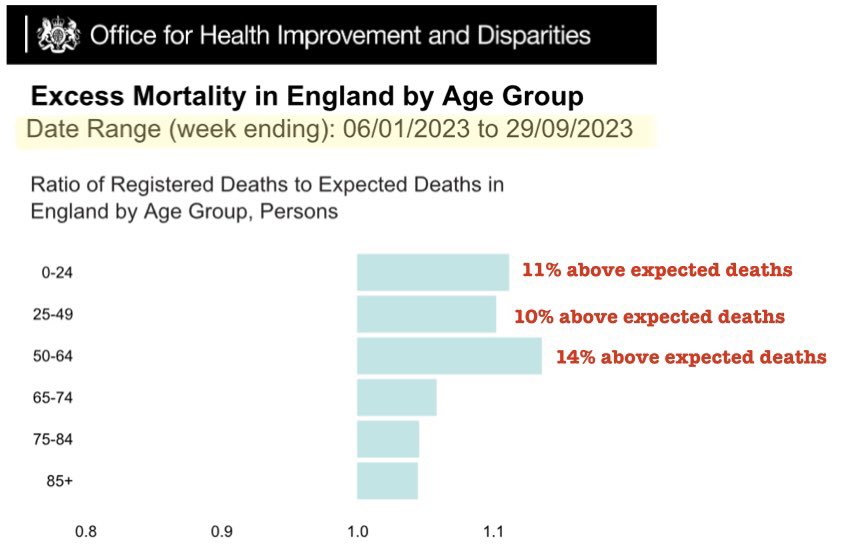You are using an out of date browser. It may not display this or other websites correctly.
You should upgrade or use an alternative browser.
You should upgrade or use an alternative browser.
Wuhan Killer Sneeze (thanks Tea)
- Thread starter hmg
- Start date
-
- Tags
- a grotesquely ugly freak ample cleavage bourgeois foodyism dunghill riddim fucking voodoo magic man jamaican voodoo gang from predator 2 linebaugh's balls ground into dust no no no no no no no no time is the true river that runs 'round hell wuhan ain't nuthing ta f' wit wuhan got you all in check
There is some evidence to support antiviral nasal sprays. They will probably only stop you catching covid if you have very slight exposure (like being close to a + person outdoors), but they can definitely help in reducing viral load, which is one of the main factors in severe illness.
We used them along with everything else last time we had a case in the house and I think they may have helped a bit, and they certainly didn't do any harm. Carragelose is one of the most effective ingredients - this is an affordable option, spray before and after potential exposure.
 www.boots.ie
www.boots.ie
We used them along with everything else last time we had a case in the house and I think they may have helped a bit, and they certainly didn't do any harm. Carragelose is one of the most effective ingredients - this is an affordable option, spray before and after potential exposure.
Boots Dual Defence Nasal Spray 20ml - Boots Ireland
Shop Boots Dual Defence Nasal Spray 20ml. Shop online today.
mixed_biscuits
_________________________
There's a guy on twitter, Bob Watcher, who would make these ridiculously long threads detailing his safety calculations and why he is justified in not masking in x/y/z scenario. He eventually got covid, had a low blood pressure event in the shower (which is common) and smashed his face open in the fall. Im not gonna follow his example, but I can outline what you should be considering.
The official advice hidden in the small print of most public health authority guidelines is that you should wear an N95 indoors or in crowded areas when cases are high, and thats good advice.
But in the absence of proper testing, its become very difficult to say if cases are high. Since they shut down the ONS survey in March the only useful indicators we had left are test positivity and wastewater. Wales stopped wastewater testing in May (they have apparently just brought it back in, but theres no new reports yet). Test positivity in Wales atm is 11-14%, which means there's a fair amount of virus circulating. The WHO once said that anything over 5% meant that the virus was out of control.
The important thing to be cognisant of is that covid is airborne, spreads in the air like smoke and 40-60% of all infections are pre-symptomatic or asymptomatic. Now, chlorine kills the virus, so you wont catch it from the water, but imagine someone smoking in the dressing room. A pre or asymptomatic person is like someone smoking a single cigarette, someone with symptoms might be the equivalent of someone smoking a whole pack. Would you be able to smell the smoke if you were in there with them? How long would it take for the smell to clear the room? Do you trust other people not to go out in public when they're sick?
Sorry for the lack of a certainty, but the short answer is that it's impossible to say. It will depend on the time of day, how busy it is and how much risk you want to take. You might go every day for years and be completely fine or you could catch it off the receptionist on the first day. If you go when its nearly empty and wear a respirator until you get in the pool that will minimise your exposure.
Personally, when cases were very low in the summer I might have taken the chance, but for the foreseeable future it looks pretty risky. The wastewater data will tell us more once it recommences.
@craner tl;dr either go to a lido or save yourself the suspense and smash yourself in the face.
mixed_biscuits
_________________________
OMG, I've added something to his meagre repertoire.There is some evidence to support antiviral nasal sprays. They will probably only stop you catching covid if you have very slight exposure (like being close to a + person outdoors), but they can definitely help in reducing viral load, which is one of the main factors in severe illness.
We used them along with everything else last time we had a case in the house and I think they may have helped a bit, and they certainly didn't do any harm. Carragelose is one of the most effective ingredients - this is an affordable option, spray before and after potential exposure.
Boots Dual Defence Nasal Spray 20ml - Boots Ireland
Shop Boots Dual Defence Nasal Spray 20ml. Shop online today.www.boots.ie
mixed_biscuits
_________________________
mixed_biscuits
_________________________
I don't think one needs hard data to get a feel for whether Covid is prevalent or not as you will hear people saying they know someone who's had it, or they had it recently etc. and in fact that word on the street is more useful because it is local.
mixed_biscuits
_________________________
Yeah the guy in the Sunday Times said he had it but it was in between a cold and a flu and he very much didn't want any of the rules back.Quite a few people I know have had it recently, but the symptoms have been mild and basically cold-like and I haven't heard anyone complaining of lasting effects once the infection has passed.
Quite a few people I know have had it recently, but the symptoms have been mild and basically cold-like and I haven't heard anyone complaining of lasting effects once the infection has passed.
lol, that's conclusive. I know quite a few people who've been in car crashes but they're all fine, so I guess RTCs aren't dangerous.
Meanwhile, 341 people died of covid last week in England and Wales and multiple UK hospitals declared critical incidents that just happen to coincide with spikes in covid positivity in their catchment areas.
And then there's the mysterious respiratory illness apparently sweeping the nation that definitely isn't related to covid.

Outbreak of 'never-ending' terrible 'lurgy that's not Covid' hits UK
Many complained that half terms had been ruined by the bug with people complaining they 'can't breathe' and of it being 'never ending'
And the staggering excess death rates in the younger age groups have continued through till the end of September. It's reassuring to know that this definitely all has nothing to do with covid. Thanks for that.

Mr. Tea
Let's Talk About Ceps
lol, that's conclusive. I know quite a few people who've been in car crashes but they're all fine, so I guess RTCs aren't dangerous.
I know people were made badly ill by covid, too, including someone (same age as me) who is still suffering from long-term symptoms. But these were people who got ill from it in one of the first two peaks in 2020-21, before vaccines were available and before omicron became the most widespread variant.
FFS tea, there is voluminous evidence to show that long covid is a serious and continuing problem post omicron and vaccines, and that vaccines do not provide significant protection from long covid and post covid symptoms. This is simply not up for debate.
Results: The proportion of PCC among participants infected during the Alpha, Delta, and Omicron-dominant periods was significantly different and respectively 50%, 50%, and 37%. Participants infected during the Alpha- and Delta-dominant periods had a significantly higher odds of having PCC than those infected during the Omicron-dominant period (OR = 1.61, 95% confidence interval [CI] = 1.33-1.96 and OR = 1.73, 95%CI = 1.54-1.93, respectively). Participants infected during the Alpha and Delta-dominant periods were more likely to report neurocognitive, respiratory, and anosmia/dysgeusia symptoms of PCC.
Conclusions: People infected during the Alpha- and Delta-dominant periods had a higher probability of having PCC three months after infection than those infected during the Omicron-dominant period. The lower probability of PCC with the Omicron variant must also be interpreted in absolute figures. Indeed, the number of infections with the Omicron variant being higher than with the Alpha and Delta variants, it is possible that the overall prevalence of PCC in the population increases, even if the probability of having a PCC decreases.

 pubmed.ncbi.nlm.nih.gov
pubmed.ncbi.nlm.nih.gov
In a highly vaccinated population (94% with >=3 vaccine doses), almost 20% of persons infected with the SARS-CoV-2 Omicron variant reported symptoms consistent with Long COVID 90 days post diagnosis. Long COVID was associated with sustained negative impacts on work/study and a substantial utilisation of GP services 2-3 months after the acute illness; however, ED presentations and hospitalisations for Long COVID were rare.

 www.medrxiv.org
www.medrxiv.org
Results: The proportion of PCC among participants infected during the Alpha, Delta, and Omicron-dominant periods was significantly different and respectively 50%, 50%, and 37%. Participants infected during the Alpha- and Delta-dominant periods had a significantly higher odds of having PCC than those infected during the Omicron-dominant period (OR = 1.61, 95% confidence interval [CI] = 1.33-1.96 and OR = 1.73, 95%CI = 1.54-1.93, respectively). Participants infected during the Alpha and Delta-dominant periods were more likely to report neurocognitive, respiratory, and anosmia/dysgeusia symptoms of PCC.
Conclusions: People infected during the Alpha- and Delta-dominant periods had a higher probability of having PCC three months after infection than those infected during the Omicron-dominant period. The lower probability of PCC with the Omicron variant must also be interpreted in absolute figures. Indeed, the number of infections with the Omicron variant being higher than with the Alpha and Delta variants, it is possible that the overall prevalence of PCC in the population increases, even if the probability of having a PCC decreases.

Association between SARS-CoV-2 variants and post COVID-19 condition: findings from a longitudinal cohort study in the Belgian adult population - PubMed
People infected during the Alpha- and Delta-dominant periods had a higher probability of having PCC three months after infection than those infected during the Omicron-dominant period. The lower probability of PCC with the Omicron variant must also be interpreted in absolute figures. Indeed, the...
In a highly vaccinated population (94% with >=3 vaccine doses), almost 20% of persons infected with the SARS-CoV-2 Omicron variant reported symptoms consistent with Long COVID 90 days post diagnosis. Long COVID was associated with sustained negative impacts on work/study and a substantial utilisation of GP services 2-3 months after the acute illness; however, ED presentations and hospitalisations for Long COVID were rare.

Long COVID in a highly vaccinated population infected during a SARS-CoV-2 Omicron wave – Australia, 2022
Objective To characterise Long COVID in a highly vaccinated population infected by Omicron. Design Follow-up survey of persons testing positive for SARS-CoV-2 in Western Australia, 16 July-3 August 2022. Setting Community Participants 22,744 persons with COVID-19 who had agreed to participate...
mixed_biscuits
_________________________
Reported in The Times also; maybe this will encourage similar suits.
mixed_biscuits
_________________________
Contradiction: how and why is Norfolk recording a huge number of cases and Wales is somehow deciding to cover up Covid while at the same time acknowledging it?FFS tea, there is voluminous evidence to show that long covid is a serious and continuing problem post omicron and vaccines, and that vaccines do not provide significant protection from long covid and post covid symptoms. This is simply not up for debate.
Results: The proportion of PCC among participants infected during the Alpha, Delta, and Omicron-dominant periods was significantly different and respectively 50%, 50%, and 37%. Participants infected during the Alpha- and Delta-dominant periods had a significantly higher odds of having PCC than those infected during the Omicron-dominant period (OR = 1.61, 95% confidence interval [CI] = 1.33-1.96 and OR = 1.73, 95%CI = 1.54-1.93, respectively). Participants infected during the Alpha and Delta-dominant periods were more likely to report neurocognitive, respiratory, and anosmia/dysgeusia symptoms of PCC.
Conclusions: People infected during the Alpha- and Delta-dominant periods had a higher probability of having PCC three months after infection than those infected during the Omicron-dominant period. The lower probability of PCC with the Omicron variant must also be interpreted in absolute figures. Indeed, the number of infections with the Omicron variant being higher than with the Alpha and Delta variants, it is possible that the overall prevalence of PCC in the population increases, even if the probability of having a PCC decreases.

Association between SARS-CoV-2 variants and post COVID-19 condition: findings from a longitudinal cohort study in the Belgian adult population - PubMed
People infected during the Alpha- and Delta-dominant periods had a higher probability of having PCC three months after infection than those infected during the Omicron-dominant period. The lower probability of PCC with the Omicron variant must also be interpreted in absolute figures. Indeed, the...pubmed.ncbi.nlm.nih.gov
In a highly vaccinated population (94% with >=3 vaccine doses), almost 20% of persons infected with the SARS-CoV-2 Omicron variant reported symptoms consistent with Long COVID 90 days post diagnosis. Long COVID was associated with sustained negative impacts on work/study and a substantial utilisation of GP services 2-3 months after the acute illness; however, ED presentations and hospitalisations for Long COVID were rare.

Long COVID in a highly vaccinated population infected during a SARS-CoV-2 Omicron wave – Australia, 2022
Objective To characterise Long COVID in a highly vaccinated population infected by Omicron. Design Follow-up survey of persons testing positive for SARS-CoV-2 in Western Australia, 16 July-3 August 2022. Setting Community Participants 22,744 persons with COVID-19 who had agreed to participate...www.medrxiv.org
Still no newspaper article by anyone saying this is a thing. At least with many conspiracy theories of the Covid era proper one could point at reputable people saying something incongruous and also point at the agents of suppression and omission...
Murphy
cat malogen
Contradiction: how and why is Norfolk recording a huge number of cases
Dogging
mixed_biscuits
_________________________
I don't have that cool a tracksuit either. Are you seeing these hospital Covid waves @WashYourHands?
Murphy
cat malogen
Mr. Tea
Let's Talk About Ceps
FFS tea, there is voluminous evidence to show that long covid is a serious and continuing problem post omicron and vaccines, and that vaccines do not provide significant protection from long covid and post covid symptoms. This is simply not up for debate.
Results: The proportion of PCC among participants infected during the Alpha, Delta, and Omicron-dominant periods was significantly different and respectively 50%, 50%, and 37%. Participants infected during the Alpha- and Delta-dominant periods had a significantly higher odds of having PCC than those infected during the Omicron-dominant period (OR = 1.61, 95% confidence interval [CI] = 1.33-1.96 and OR = 1.73, 95%CI = 1.54-1.93, respectively). Participants infected during the Alpha and Delta-dominant periods were more likely to report neurocognitive, respiratory, and anosmia/dysgeusia symptoms of PCC.
Conclusions: People infected during the Alpha- and Delta-dominant periods had a higher probability of having PCC three months after infection than those infected during the Omicron-dominant period. The lower probability of PCC with the Omicron variant must also be interpreted in absolute figures. Indeed, the number of infections with the Omicron variant being higher than with the Alpha and Delta variants, it is possible that the overall prevalence of PCC in the population increases, even if the probability of having a PCC decreases.

Association between SARS-CoV-2 variants and post COVID-19 condition: findings from a longitudinal cohort study in the Belgian adult population - PubMed
People infected during the Alpha- and Delta-dominant periods had a higher probability of having PCC three months after infection than those infected during the Omicron-dominant period. The lower probability of PCC with the Omicron variant must also be interpreted in absolute figures. Indeed, the...pubmed.ncbi.nlm.nih.gov
In a highly vaccinated population (94% with >=3 vaccine doses), almost 20% of persons infected with the SARS-CoV-2 Omicron variant reported symptoms consistent with Long COVID 90 days post diagnosis. Long COVID was associated with sustained negative impacts on work/study and a substantial utilisation of GP services 2-3 months after the acute illness; however, ED presentations and hospitalisations for Long COVID were rare.

Long COVID in a highly vaccinated population infected during a SARS-CoV-2 Omicron wave – Australia, 2022
Objective To characterise Long COVID in a highly vaccinated population infected by Omicron. Design Follow-up survey of persons testing positive for SARS-CoV-2 in Western Australia, 16 July-3 August 2022. Setting Community Participants 22,744 persons with COVID-19 who had agreed to participate...www.medrxiv.org
This actually backs up exactly what I've been saying, though, doesn't it?
Results: The proportion of PCC among participants infected during the Alpha, Delta, and Omicron-dominant periods was significantly different and respectively 50%, 50%, and 37%. Participants infected during the Alpha- and Delta-dominant periods had a significantly higher odds of having PCC than those infected during the Omicron-dominant period (OR = 1.61, 95% confidence interval [CI] = 1.33-1.96 and OR = 1.73, 95%CI = 1.54-1.93, respectively). Participants infected during the Alpha and Delta-dominant periods were more likely to report neurocognitive, respiratory, and anosmia/dysgeusia symptoms of PCC.
Conclusions: People infected during the Alpha- and Delta-dominant periods had a higher probability of having PCC three months after infection than those infected during the Omicron-dominant period. The lower probability of PCC with the Omicron variant must also be interpreted in absolute figures. Indeed, the number of infections with the Omicron variant being higher than with the Alpha and Delta variants, it is possible that the overall prevalence of PCC in the population increases, even if the probability of having a PCC decreases.
Precisely as I've been saying for ages, and which you pooh-pooh'd several pages ago: once omicron - the more infectious, but less virulent, variant (or family of variants) - became the dominant kind of covid, then people obviously didn't stop getting ill but were a lot less likely to become ill enough to still be suffering from PCC months later.
My friend who still isn't quite right got ill before omicron had even been detected in the UK, and therefore must have caught one of the more virulent strains that were very prevalent then.
Clinamenic
Binary & Tweed
2000th post, we've completed 100 pages again. Carry on. I'll have more water bottles for everyone after another 100 pages.



